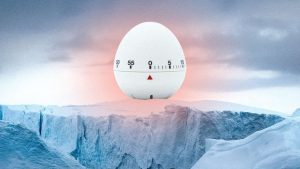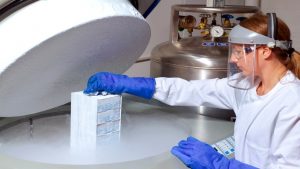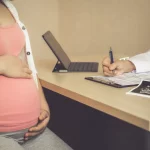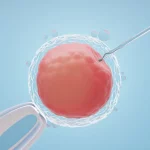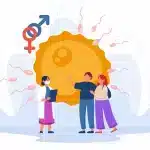
In the realm of reproductive choices, egg freezing has emerged as a revolutionary option for individuals seeking to preserve their fertility. As societal norms continue to evolve, the question of when the optimal age is to consider egg freezing becomes increasingly pertinent. In this blog, we delve into the factors influencing the decision, the ideal age range, and the potential benefits and considerations associated with this innovative reproductive technology.
Factors Influencing the Decision to Freeze Eggs
Biological Clock and Fertility Decline
Understanding the biological clock is crucial in determining the optimal age for egg freezing. Female fertility is known to decline with age, primarily due to a decrease in both quantity and quality of eggs. By freezing eggs at a younger age, individuals can preserve eggs when they are more likely to be viable, mitigating the impact of age-related fertility decline.
Career and Personal Goals
For many individuals, pursuing education and establishing a career take precedence in their early adult years. As societal expectations shift, more people are choosing to delay starting a family until later in life. Egg freezing provides a viable option for those who wish to prioritize professional and personal goals without compromising their future fertility.
Ideal Age Range for Egg Freezing
Late 20s to Early 30s: Prime Time for Egg Freezing
The consensus among fertility experts is that the late 20s to early 30s represents the optimal age range for considering egg freezing. During this period, a woman’s ovarian reserve is typically at its peak, and the quality of eggs is generally higher. By taking advantage of this window, individuals can maximize the chances of successful egg freezing and future fertility treatments.
Potential Benefits of Egg Freezing at a Younger Age
Higher Egg Quality
Eggs frozen at a younger age tend to have better quality, which can significantly impact the success rates of later fertility treatments such as in vitro fertilization (IVF).
Increased Chance of Pregnancy
Preserving eggs in the late 20s to early 30s enhances the likelihood of achieving a healthy pregnancy when individuals decide to use their frozen eggs in the future.
Emotional and Psychological Well-being
Knowing that fertility options are secured through egg freezing can alleviate the stress and pressure associated with the ticking biological clock. This proactive approach empowers individuals to make family-building decisions on their terms.
Considerations and Challenges
Financial Investment
While egg freezing can offer peace of mind and increased reproductive options, it is essential to consider the financial aspects. The process involves significant costs for retrieval, storage, and potential future fertility treatments. Understanding these expenses is crucial for informed decision-making.
Ethical and Social Considerations
Egg freezing raises ethical and social questions about the commodification of fertility and the societal expectations placed on individuals. Open discussions and thoughtful reflection on these aspects are vital when considering this reproductive option.
Factors Shaping the Decision to Freeze Eggs
Relationship Status and Partner Compatibility
Another crucial consideration in deciding the optimal age for egg freezing is the individual’s relationship status and partner compatibility. Some individuals may choose to freeze their eggs earlier if they are not currently in a committed relationship but desire the option to have biological children in the future. This proactive approach ensures that fertility options are not contingent on the timing of finding a life partner.
Health and Medical History
Individual health and medical history play a pivotal role in the decision-making process. Certain medical conditions or family histories may indicate a need for earlier consideration of egg freezing. Consulting with a healthcare professional can help individuals assess their specific health factors and make informed decisions about the timing of the procedure.
Navigating the Egg Freezing Process: Important Steps and Considerations
Consultation with Fertility Specialists
Before embarking on the egg freezing journey, it is advisable to schedule consultations with fertility specialists. These experts can assess an individual’s reproductive health, discuss the intricacies of the process, and provide personalized guidance based on medical history and goals.
Education on the Egg Freezing Process
Understanding the egg freezing process is crucial for informed decision-making. This involves learning about ovarian stimulation, egg retrieval procedures, and the storage and thawing process. Education empowers individuals to actively participate in their fertility journey and fosters a sense of control over the process.
Monitoring Ovarian Reserve
Regular monitoring of ovarian reserve, typically done through blood tests and ultrasounds, helps fertility specialists determine the optimal time for egg retrieval. This ongoing assessment ensures that the procedure aligns with the individual’s biological timeline.
Challenges and Considerations in the Egg Freezing Journey
Emotional and Psychological Preparedness
Egg freezing is not only a physical process but also an emotional and psychological journey. Individuals considering this option should be prepared for the emotional aspects of fertility preservation. Seeking support from counselors, support groups, or mental health professionals can be beneficial in navigating the emotional terrain of the egg freezing journey.
Ethical Considerations in Egg Freezing
The ethical dimensions of egg freezing extend beyond personal choices to broader societal implications. Dialogues surrounding the ethical considerations of egg freezing, including issues of accessibility, equity, and the societal impact of delayed family planning, contribute to a more nuanced understanding of the technology.
Frequently Asked Questions (FAQs)
Q: At what age should I consider egg freezing?
A: Egg freezing is most effective in the late 20s to early 30s when ovarian reserve is optimal. However, individual circumstances, health, and relationship status are crucial factors. Consulting a fertility specialist can provide personalized guidance.
Q: How does the egg freezing process work?
A: The process involves ovarian stimulation, egg retrieval, freezing, and storage. Ovarian reserve is monitored, and eggs are retrieved during a minor surgical procedure. When ready for family planning, the eggs are thawed and used in assisted reproductive techniques.
Q: What are the potential risks and side effects of egg freezing?
A: While generally safe, mild side effects like bloating or discomfort may occur during ovarian stimulation. Rare complications include infection or bleeding, but these are infrequent and can be managed with proper medical care.
Q: How long can eggs be safely stored?
A: Eggs can be stored for several years, and studies suggest they remain viable even after a decade. Storage duration does not significantly impact the success rates of egg thawing and subsequent fertilization.
Q: Is egg freezing affordable, and are there financing options?
A: The cost varies but typically includes retrieval, freezing, and annual storage fees. Some fertility clinics offer financing options, and insurance coverage is expanding. Exploring financial aspects and potential assistance programs is advisable before embarking on the egg freezing journey.
Conclusion
In conclusion, the optimal age to consider egg freezing lies in the late 20s to early 30s, providing a balance between biological factors and personal aspirations. By understanding the biological clock, considering career and personal goals, and weighing the potential benefits and challenges, individuals can make informed decisions about when to pursue egg freezing. This innovative technology empowers individuals to take control of their reproductive futures, offering a pathway to family-building that aligns with their life journey. As the landscape of reproductive choices continues to evolve, egg freezing stands as a beacon of hope for those seeking flexibility and autonomy in their family planning.
Should you have any questions or concerns as an intended parent, please do not hesitate to contact us at 212-661-7177 or info@eggdonors4all.com

Dr. Veera Saghar
As an Egg Donor Coordinator, she plays a critical role in our company. Her background as a medical graduate from ISRA UNIVERSITY in Pakistan provides us with a solid foundation in the medical sciences. She has seven years of clinical experience practicing in the USA. This has given her firsthand experience when collaborating with patients and their families.
She is responsible for managing the process of egg donation from start to finish. We identify and screen potential egg donors.

